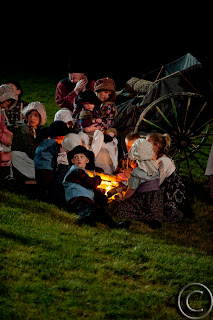There was one part in the Manti Pageant I felt drawn to be a part of. During the scenes of Christ in America, a few were assigned to come forward and touch the Saviours hands. I wanted to be one of them.
As I considered how I would feel when that time will eventually come, it brought to remembrance a discussion that took place many years ago, in youth Sunday School. The discussion was around the question of; how would we each greet Jesus if he were to appear at church today?
The one response that made me think the most was, that they would hug him like a brother, freely and familiar, because Christ wouldn’t want us to feel uncomfortable. Whilst I agreed that Christ wanted us to feel welcome in his presence, I found the complete lack of awe in such a response, a hug, decidedly disappointing. Would this really be our natural response to being in the presence of the One Being who above all others embodies supreme Holiness?
Christ holds many titles and roles in our lives. Recongising only one, or a few can mean missing significant other blessings that bring us closer to him. For example, remembering Christ as my brother makes Him approachable. Thinking of Him as our Judge, distances us from Him. Both are valuable and needed, to deny either one is to not fully embrace all the love He offers.
The scriptures clearly state that when He comes a second time there will be those who will rejoice and that there will be those who will want the mountains and rocks to fall on them that they might hide from what they perceive to be His wrath. (Rev 6:15-17) One group of people will feel joy and triumph. Others will feel His anger.
Consider how we might sometimes feel in the presence of someone who is incredibly more beautiful than us. Often, there are those who suddenly feel themselves less attractive, even ugly, when before they had not thought so. Some might be inspired to do better at presenting themselves more beautifully, whilst others feel threatened and shrink away. They chose to associate themselves with people who look like themselves, who are unthreatening. A similar response might be had when confronted with highly intelligent people. We are suddenly faced with our ignorance. Many times we just completely lack the ability to rise to a higher level and we remain excluded.
Imagine then, being in the presence of One whose defining quality is complete goodness. Someone who has never put a foot wrong and is filled with the most incredible intense love. A being who has experienced extreme torture and pain on your behalf and feels no bitterness towards you for it. Someone whose name you, and others around you, had used as a cuss word. Had ignored. Now, suddenly there this man is before you.
No matter how cavalier society has become in the use of His name and the study and understanding of His identity, when we come face to face with such goodness, such forgiveness and loving kindness in the face of so much hate, we shall all want to shrink. Before Him none are good. We shall experience discomfort, guilt and shame.
All the bad, miserable little traits of which we were only half aware or stubbornly justified, will suddenly be thrown into stark contrast with the depth of His character, His love and His wholeness. How pitiful we will feel.
But then He will say, as He did then,
“Come, feel the prints of the nails in my hands and in my feet.”
An offer of such intimate friendship. He says, in effect,
“Feel the scars that were made because of your sins, your badness. These are the tokens of the price that was paid, for you to be free from this guilt, free from these feelings of inadequacy, of the need to justify yourself and free from fear of not being loved.”
To touch the Saviours hands, to touch those scars, the symbol of the price He paid for me, I would not hug him. I would do as those Nephites of old did, kiss his feet and shout Hosanna!
It is amazing to me that the One being in whose presence we shall feel most insignificant, will raise us up to understand our truest, grandest, most eternal worth.
I am sorry, but a hug would not suffice.
Whilst these were the kind of thoughts that my own mind thought through each night we portrayed Christ’s visit to America it was clear that not all participants had the same feelings. It is a hard thing to keep something fresh and real when it is repeated so many times.
Noticing those who lost focus, got distracted or just put in a half hearted effort into their part made me wonder. What is the problem here? Why aren’t they feeling it?
The spirit whispered to me the answer.
They do not believe that their role, in a huge crowd of others, is important or significant. They do not believe that what they do matters. They under value themselves.
At the closing testimony meeting on the Sunday after the last performance this is what I spoke of. . I testified that every person mattered, that their spirit always contributes to a great whole, either bringing it higher or keeping it low. It’s a principle to remember for life, not just for pageants.



































